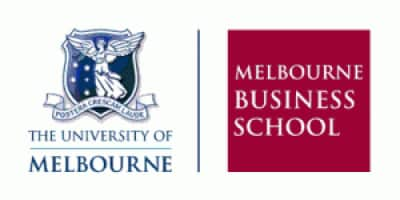SAS & Melbourne Business School to address skills gap
A shortage of data analytics graduates is the driver behind a new Master of Business Analytics degree at the Melbourne Business School. The one-year, full-time course, backed by SAS, addresses the lack of analytics specialists who also possess business experience.
The shortage is a global concern. The digital universe is doubling every 18 months and organisations are grappling with both the challenges and opportunities presented. While more are using analytics to improve their decision-making, there is a lack of qualified practitioners available with the appropriate experience to meet the demand.
Students studying the degree comprise both recent university graduates and those already in the workforce, all candidates are interviewed to ensure they are the right fit for the course and suitable for employment after they finish the degree.
Professor Ujwal Kayande
Melbourne Business School
The McKinsey Global Institute projects that by 2018, the United States alone could face a shortage of 140,000 to 190,000 people with deep analytical skills as well as 1.5 million managers with the know-how to use big data to make effective decisions.
Real-world experience
Melbourne Business School professor Ujwal Kayande was involved in the early discussions around the degree.
“We started thinking about how we could address the big changes that are occurring in the business world, and particularly the need for organisations to become more data-informed in their decision making,” he says. “We wanted to establish Melbourne Business School as a global thought leader in analytics for business and since SAS is the dominant player in this area, it made sense to collaborate with them.”
The degree presents students with a wide variety of analytics methodologies as well as the business contexts in which they are set. They learn how to investigate the data including what questions need to be asked of it. They also develop strong professional and personal development skills to help deliver both data-based insights and business impacts.
The program content includes a five-week assignment in the commercial workplace, where students apply analytics to real world business issues.
“Students studying the degree comprise both recent university graduates and those already in the workforce,” says Kayande. “All candidates are interviewed to ensure they are the right fit for the course and suitable for employment after they finish the degree.”
After students complete the degree, they receive a Masters in Business Analytics as well as a SAS Certificate in Business Analytics. This globally recognised SAS certification identifies professionals who are both skilled data analysts and have developed a business focus on analytics for problem solving and decision-making.
Engaging with industry
SAS is also the leading founding partner of the school’s Centre for Business Analytics, which engages with industry through educational programs, collaborative workshops, and shared research. The Centre is lead by Professor Ujwal Kayande.
Other supporters of the centre include AT Kearney, SEEK, Brightstar, Suncorp, Forethought, Carlton & United Breweries, and Telstra. The supporters’ role is to sit on the Centre's industry advisory board and/or provide funding for scholarships, data sets, and workplace secondments.
About Melbourne Business School
Melbourne Business School is Australia’s premier provider of business education and part of the University of Melbourne, one of the world’s leading universities. Melbourne Business School Dean, Professor Zeger Degraeve, says that over the next two years, more than 1600 business analytics jobs will be created in Australia and this is expected to generate interest in the degree.

Challenge
There is a shortage of data specialists who possess relevant business experience. More qualified practitioners are needed to meet the growing demand worldwide.
Solution
A one-year Master of Business Analytics degree, backed by SAS, was established.
Benefits
The collaboration greatly contributes to alleviating the skills gap as students are provided with experience in a wide variety of analytics methodologies as well as the business contexts in which they are set.